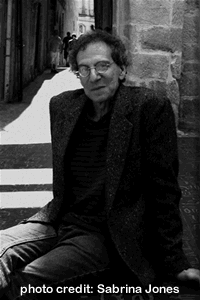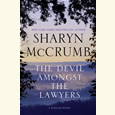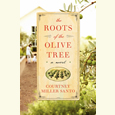Hebrew Lessons
Memphis author Steve Stern spins the tale of a cryogenic rabbi into an exploration of truth, fantasy, tradition, and trial
Rummaging through the family deep freeze, fifteen-year-old Bernie Karp finds pork tenderloins and an ancient rabbi frozen in a block of ice. The rabbi’s journey from nineteenth-century Poland to freezer and beyond—and his effect on those he meets—is the stuff of Steve Stern’s latest novel, The Frozen Rabbi , a hilarious, poignant romp through the Jewish diaspora to the very firmament itself.
The Frozen Rabbi weaves together two stories: the tale of Rabbi Eliezer ben Zephyr, a.k.a. the Boibiczer Prodigy, who in 1889 was accidentally frozen solid while in a meditative state; and that of the Karp (né Karpinski) family, into whose care the rabbi by chance falls. From the pogroms of Poland and Russia to hellish Manhattan ghettos, uptown apartments, and Memphis suburbs, the Karps and their predecessors struggle, often in spite of themselves, to keep the rabbi in his cryogenic state.
Enter the adolescent Bernie, who is witness to Rabbi Eliezer’s chance unthawing and miraculous revival. Like the rabbi’s previous caretakers, the teen is transformed by his contact with the shaman-like character. Shedding weight and inhibition, he studies Kabbalah-like mysticism and scores a bohemian girlfriend. As Bernie finds himself torn between his newfound spiritual powers and newfound earthly delights, the rabbi is himself reinvented as a modern-day self-help guru whose contradictory prescription for happiness treads on scandalous ground.
 Jumping between distant and recent past, The Frozen Rabbi walks the knife-edge between this world and the next. The Swedenborg-ish Bernie, for example, has one foot in the here and one foot in the hereafter. Involuntarily launched into out-of-body experiences whenever he and his girlfriend come close to consummating their relationship, the virgin Bernie seeks the rabbi’s counsel. “Then maybe you with the sacred you should break already your connection, so you ain’t no more torn,” is the advice given. Such contradictory guidance is typical of the Boibiczer Prodigy, a fictional character whose paradoxical mantra, “Praise God who permits the forbidden,” recalls the Sabbatean Heresy of redemption through sin. “Stop kvetching and start yentzing [screwing]; this is my advice that I give to you free of charge,” he concludes.
Jumping between distant and recent past, The Frozen Rabbi walks the knife-edge between this world and the next. The Swedenborg-ish Bernie, for example, has one foot in the here and one foot in the hereafter. Involuntarily launched into out-of-body experiences whenever he and his girlfriend come close to consummating their relationship, the virgin Bernie seeks the rabbi’s counsel. “Then maybe you with the sacred you should break already your connection, so you ain’t no more torn,” is the advice given. Such contradictory guidance is typical of the Boibiczer Prodigy, a fictional character whose paradoxical mantra, “Praise God who permits the forbidden,” recalls the Sabbatean Heresy of redemption through sin. “Stop kvetching and start yentzing [screwing]; this is my advice that I give to you free of charge,” he concludes.
By reveling in such mystical twaddle, Stern presents his readers with a kind of reverse Enlightenment, whereby the utilitarian advances of the modern age are supplanted by the superstitions and magical properties of the past. For instance, Bernie’s great-grandfather Shmerl, an inventor and fellow guardian of the as yet-unfrozen rabbi, dismisses his early versions of the vacuum cleaner and ceiling fan as having “no redeeming metaphysical value.” His ice-making contraption, on the other hand, “duplicates the prophet Ezekiel his vision of wheels within wheels.” The rabbi’s indictment of contemporary culture follows suit: “Shopping bazaars it’s got, and Dodge Barracudos and Gootchie bags made I think from the skin of Leviathan, churches from Yoyzel it’s got big as Herod’s Temple, but it ain’t got a soul.”
Stern’s hagiography makes the most of such broken “yinglish,” as well as traditional Yiddish black humor. At one point, as the rabbi hovers close to death, a follower asks him if he’s comfortable. “I make a livink,” he replies. Such self-deprecating yucks are typical of a people who are, as Stern says, “fed up with a religion predicated on anticipation and the suffering one must endure in the protracted meantime.”
Humor notwithstanding, Stern makes no attempt to gloss over the horrors of the Jewish experience in Eastern Europe, as well as in Palestine and immigrant America. The Frozen Rabbi is at times terrible and sad. In such instances, Stern’s talent is particularly evident. As his characters come into harm’s way and are then forgotten, his compassion for their situation is visceral even as their fates are sealed. If such cruelty sometimes makes The Frozen Rabbi a tough read, Stern’s narrative skill ensures that his readers’ biggest challenge may be resisting the urge to skip ahead to see what happens next.
[This review originally appeared on June 9, 2010.]


